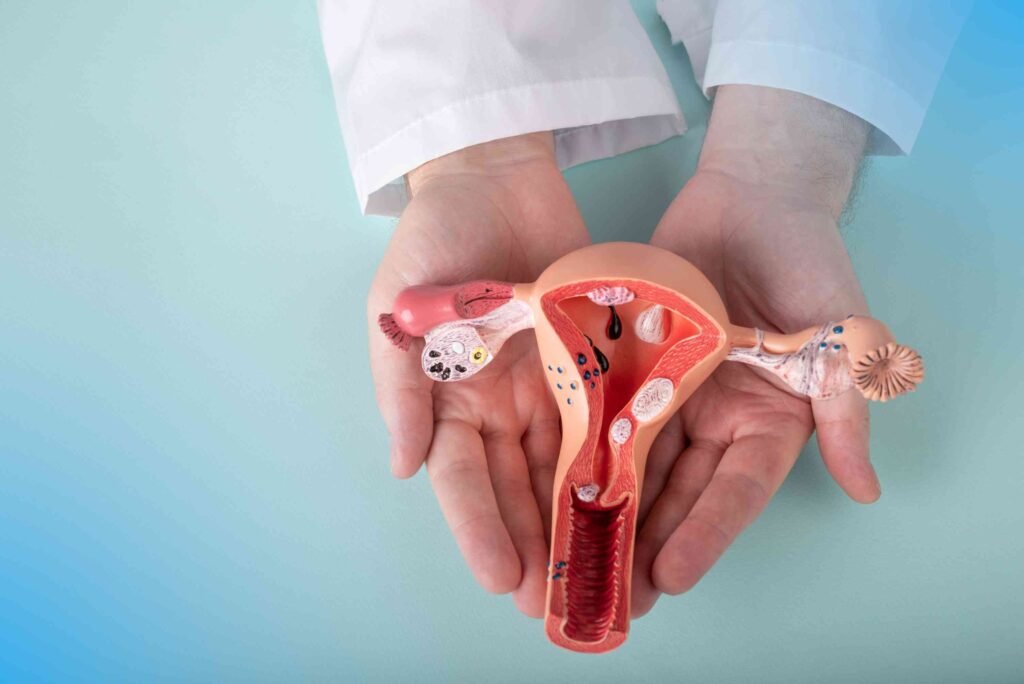When you’re trying to conceive and things aren’t going as expected, it can feel like you’re stuck in a maze of unanswered questions. One of the most common but often overlooked causes of infertility is a group of conditions known as Ovulatory Disorders. These disorders are surprisingly prevalent, affecting millions of women worldwide, yet they often go undiagnosed or misunderstood.
In this blog post, we’ll take a deep dive into what ovulatory disorders are, how they impact your fertility, the signs to watch out for, and most importantly, what you can do about them. Whether you’re just starting your fertility journey or you’ve been trying for a while, understanding the role ovulation plays can be a major turning point.
What Are Ovulatory Disorders?
Ovulatory disorders are conditions that disrupt the normal ovulation process. Ovulation is the part of your menstrual cycle where your ovary releases an egg, making it available for fertilization. It usually happens once per cycle, roughly midway between periods.
When this process doesn’t occur regularly—or at all—it becomes much more difficult to conceive naturally. These disruptions can range from having no ovulation at all (anovulation) to having irregular or unpredictable ovulation. In some cases, a woman might ovulate, but the egg released is not viable or the hormonal environment isn’t ideal for conception.

The most common forms of ovulatory disorders include:
- Polycystic Ovary Syndrome (PCOS)
- Hypothalamic Amenorrhea
- Premature Ovarian Insufficiency (POI)
- Hyperprolactinemia
- Thyroid Dysfunction
Each of these has its own causes, symptoms, and treatment options, but all share one thing in common: they interfere with the body’s natural reproductive rhythm.
How Do Ovulatory Disorders Affect Fertility?
If you think of fertility as a beautifully choreographed dance, ovulation is the beat that keeps everything in sync. When that rhythm falters, so does the chance of conception.
Ovulatory disorders can impact fertility in several ways:
- No egg, no baby: Without the release of an egg, there’s nothing for sperm to fertilize.

2. Hormonal imbalance: These disorders often come with hormonal disruptions that can affect egg quality, cervical mucus, and the uterine lining.
3. Timing becomes tricky: Irregular ovulation makes it harder to predict your fertile window, reducing the chances of timed intercourse or success with treatments like IUI (intrauterine insemination).
Even if you’re ovulating sporadically, it’s a bit like trying to hit a moving target. Understanding and managing these conditions is essential if you’re trying to conceive.
Recognizing the Signs of Ovulatory Disorders
So, how do you know if you’re dealing with one of these issues? The signs can vary widely, but some common symptoms include:
- Irregular periods (long cycles, short cycles, or missed periods)
- Absent periods (amenorrhea)
- Excessive or very light bleeding
- Acne and oily skin
- Excessive hair growth (especially on the face or chest)
- Sudden weight gain or loss
- Thinning hair or hair loss
- Difficulty conceiving after a year of unprotected intercourse (or six months if over 35)
Of course, these symptoms can also be caused by other medical issues, which is why it’s crucial to speak with a healthcare provider if something doesn’t feel right.
Types of Ovulatory Disorders
Let’s break down the major types of ovulatory disorders to understand how each one affects fertility.
Polycystic Ovary Syndrome (PCOS)
This is by far the most common ovulatory disorder. PCOS is a hormonal condition where the ovaries produce excessive androgens (male hormones), which can interfere with ovulation.
Women with PCOS may have irregular periods, difficulty losing weight, acne, and excess facial or body hair. On an ultrasound, the ovaries often appear enlarged with multiple small cysts—hence the name.
PCOS is also a leading cause of infertility, but the good news is that it’s treatable with lifestyle changes, medications like clomiphene or letrozole, and sometimes assisted reproductive technologies (ART) like IVF.

Hypothalamic Amenorrhea
This form of ovulatory dysfunction is usually linked to excessive stress, weight loss, or exercise. In this condition, the hypothalamus—the part of the brain that signals your reproductive hormones—slows or stops sending those signals altogether.
Women with hypothalamic amenorrhea often have low body fat and may not menstruate at all. Fertility can often be restored with weight gain, stress management, and sometimes hormone therapy.
Premature Ovarian Insufficiency (POI)
This condition is when the ovaries stop working normally before age 40. It’s sometimes called “early menopause,” although some women with POI still have occasional periods and may even conceive naturally.
The cause isn’t always known, but it may be linked to genetics, autoimmune disorders, or medical treatments like chemotherapy. Unfortunately, POI can be one of the more challenging ovulatory disorders to manage in terms of fertility, often requiring donor eggs for conception.
Hyperprolactinemia
High levels of prolactin—the hormone responsible for breast milk production—can interfere with ovulation. This is often caused by a benign tumor in the pituitary gland but can also result from certain medications or thyroid issues.
Symptoms include irregular or absent periods, milky breast discharge (in women who are not breastfeeding), and infertility. Treating the underlying cause usually restores fertility.
Thyroid Dysfunction
Both hyperthyroidism (overactive thyroid) and hypothyroidism (underactive thyroid) can cause ovulatory problems. Thyroid hormones play a big role in regulating your menstrual cycle and supporting early pregnancy.
Fortunately, thyroid-related ovulatory disorders are often easily managed with medication, leading to improved fertility outcomes.

Diagnosing Ovulatory Disorders
If you suspect an ovulatory disorder, the first step is to consult your healthcare provider. Diagnosis typically involves a mix of:
- Medical history review
- Blood tests to check hormone levels (like FSH, LH, prolactin, thyroid hormones)
- Ultrasounds to examine the ovaries and uterus
- Ovulation tracking through basal body temperature, ovulation predictor kits, or mid-luteal progesterone testing
In some cases, further evaluation like an MRI (for pituitary abnormalities) or genetic testing might be necessary.
Treatment Options:
The good news? Most ovulatory disorders are treatable, and many women go on to have healthy pregnancies with the right support.
Lifestyle Changes
Sometimes the simplest interventions have the biggest impact. For women with PCOS or hypothalamic amenorrhea, modifying diet, reducing stress, or adjusting exercise routines can restore normal ovulation.
Medications
Several medications can help stimulate ovulation, including:
- Clomiphene citrate (Clomid)
- Letrozole (Femara)
- Metformin (often used in PCOS)
- Gonadotropins (injectable hormones)
Your doctor will recommend what’s best based on your specific condition and overall health.
Assisted Reproductive Technologies (ART)
If medications aren’t effective or other factors are involved, ART like intrauterine insemination (IUI) or in vitro fertilization (IVF) may be considered.
For women with conditions like POI, donor eggs may offer the best chance of pregnancy.

Preventing and Managing Ovulatory Disorders
While not all causes of ovulatory dysfunction are preventable, there are steps you can take to support your reproductive health:
- Maintain a balanced weight
- Eat a nutrient-rich diet
- Manage stress effectively
- Avoid extreme exercise routines
- Stay on top of regular medical check-ups
The earlier a potential issue is identified, the sooner you can take action.
Final Thoughts
Ovulatory disorders may sound intimidating, but they’re far from insurmountable. With the right knowledge, medical support, and lifestyle adjustments, many women successfully manage these conditions and go on to build the families they dream of.
If you’re experiencing irregular periods or having trouble conceiving, don’t hesitate to seek help. Understanding the signals your body is sending—and acting on them—can make all the difference.


